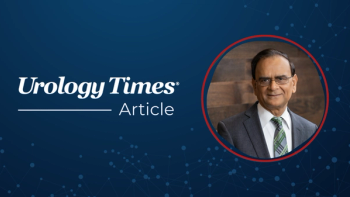
TURP duration linked with complication rate
Procedure safest when performed in <60 minutes.
San Francisco-Transurethral resection of the prostate (TURP) is safest when performed in under 60 minutes and should not be performed for longer than 120 minutes, researchers say.
The study supports the conventional wisdom about the procedure, said Christopher B. Riedinger, MD, a fourth-year resident who works with attending surgeon Norm Smith, MD, at the University of Chicago.
“We mostly confirmed what we thought,” Dr. Riedinger said. He presented the research at the AUA annual meeting in San Francisco.
Around the world, 1.2 million men undergo surgery for BPH or lower urinary tract symptoms per year, with TURP the most common procedure, said Dr. Riedinger.
Complication rates are improving with advances in instrumentation and perioperative care, yet a “dogma” persists that the procedure should be done in under an hour, he said. To see whether this tradition is supported by actual complication rates, Dr. Riedinger and his colleagues analyzed the American College of Surgeons National Surgical Quality Improvement Program (ACS NSQIP) from 2006 to 2016 for patients undergoing TURP, as defined by CPT codes 52601 and 52630.
They excluded patients whose cases were classified as an emergency, who were diagnosed with preoperative sepsis, or who underwent a concurrent procedure. That left them with 31,813 TURPs.
They separated these patients into five groups based on operative time: 0 to 30 minutes (8,163 patients), 30.1 to 60 minutes (12,932 patients), 60.1 to 90 minutes (6,790 patients), 90.1 to 120 minutes (2,517 patients), and greater than 120 minutes (1,411 patients).
Longer surgery, more complications
They found an overall complication rate of 9.00%, which increased with longer surgical duration (p<.001).
The odds ratio of having any complication was 1.1 in the 30.1- to 60-minute group, 1.3 in the 60.1- to 90-minute group, 1.6 in the 90.1- to 120-minute group, and 2.1 in the >120-minute group.
Patients whose American Society of Anesthesiologists classification was at least 4 were more likely to have fast procedures.
General anesthesia was used in 62.4% of the procedures in the 0- to 30-minute group. Another 33.8% had spinal anesthesia and 3.8% had some other type of anesthesia. The proportion getting general anesthesia increased with the duration of the procedure, reaching 79.8% in the group whose TURP took more than 2 hours.
The risk of needing a transfusion (p<.001) and reoperation (p<.001) also increased with the operative time in a linear fashion.
The risk of deep vein thrombus or pulmonary embolism was highest in the group whose surgery took longer than 2 hours, and was lowest in the groups whose surgery took 30.1 to 90 minutes (p=.021).
The risk of sepsis or septic shock remained relatively constant, below 1%, for all the duration groups except the group whose TURP took longer than 2 hours, whose risk was 1.8%. Controlling for age, comorbidities, American Society of Anesthesiologists class, race, year of surgery, and type of anesthesia administered did not affect this association.
The risk of transfusion remained significantly increased across all groups, while each of the above complications remained significantly increased for surgeries lasting longer than 120 minutes.
Newsletter
Stay current with the latest urology news and practice-changing insights — sign up now for the essential updates every urologist needs.






